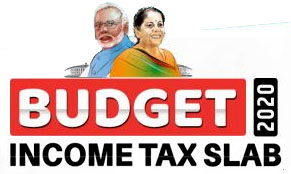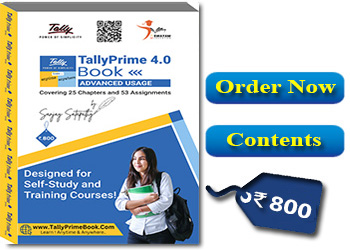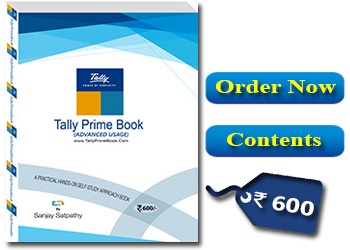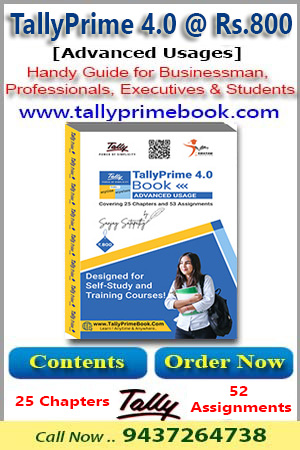1. Extension of Period of Approval under Section 80-IBA [Applicable from Assessment Year 2021-22]
Section 80-IBA provides for deduction of up to 100% of the profits arising from the housing projects. One of the conditions to claim the deduction under this section is that the project should be approved by the competent authority during the period from 01-06-2016 to 31-03-2020. The Finance Bill has proposed to extend the time-limit for approval of an affordable housing project for availing deduction under section 80-IBA to 31-03-2021.
2. Extension of Time Limit for sanctioning the Loan for Deduction under Section 80EEA [Applicable from Assessment Year 2021-22]
The Finance (No. 2) Act 2019 introduced a new deduction under section 80EEA to provide an impetus to the ‘Housing for All’ objective of the Government and to enable the home buyer to have low-cost funds at his disposal. One of the conditions to claim the deduction of interest under this section is that loan should be sanctioned by the financial institution during the period from 01-04-2019 to 3 1-03-2020. The period of sanctioning of loan by the financial institution is proposed to be extended to 31-03-2021.
3. Withdrawal of Exemption for UPSC Chairman and CEC [Applicable from Assessment Year 2020-21]
Various exemptions are provided to the Union Public Services Commission (UPSC) Chairman & Members and Chief Election Commissioner (CEC) & Election Commissioners in respect of certain perquisites or allowances. It is proposed to omit Section 10(45), which provides that any allowance and perquisite paid to the serving or retired Chairman or Members of Union Public Services Commission shall be exempt from tax. Further, amend to section 8 of the Election Commission (Conditions of Service of Election Commissioners and Transaction of Business) Act, 1991 has been proposed so as to withdraw the exemption in respect of rent-free residence, conveyance facilities, sumptuary allowance, medical facilities, etc. allowed to the Chief Election Commissioner and other Election Commissioners.
4. Exemption to a Wholly-Owned Subsidiary of ADIA and Sovereign Wealth Fund [Applicable from Assessment Year 2020-21)
A new clause (23FE) is proposed to be inserted in section 10 of the Income-tax Act to provide an exemption to a wholly-owned subsidiary of the Abu Dhabi Investment Authority (ADIA), which is a resident of the United Arab Emirates (UAE) and which makes investment, directly or indirectly, out of the fund owned by the Government of the United Arab Emirates and a sovereign wealth fund satisfying the prescribed conditions.
The exemption is proposed in respect of any income of specified person in the nature of dividend, interest or long-term capital gains arising from an investment made by it in India, whether in the form of debt or equity, in a company or enterprise carrying on the business of developing, or operating and maintaining, or developing, operating or maintaining any infrastructure facility as defined under section 80-IA(4)(i). Further, the exemption can be availed only if the investment is made on or before 3 1-03- 2024 and is held for at least three years.
5. Exemption to ISPRL [Applicable from Assessment Year 2020-21]
A new clause (48C) is proposed to be inserted in section 10 of the Income-tax Act to provide an exemption in respect of any income accruing or arising to Indian Strategic Petroleum Reserves Limited(ISPRL), being a wholly-owned subsidiary of Oil Industry Development Board under the Ministry of Petroleum and Natural Gas, as a result of arrangement for replenishment of crude oil stored in its storage facility in pursuance of directions of the Central Government in this behalf.
This exemption shall be subject to the condition that the crude oil is replenished in the storage facility within three years from the end of the financial year in which the crude oil was removed from the storage facility for the first time.
6. Restrictions on deduction under Section 80GGA [Applicable from 01-06-2020]
Section 80GGA allows deduction for the donation made to certain approved scientific research association or rural development projects. The deduction is allowed for 100% of the amount donated to such institutions. At present, the donations made in cash for an amount exceeding Rs. 10,000 are not eligible for deduction.
The Finance Bill 2020 proposes to restrict the deduction of cash donation under section 80GGA to Rs. 2,000 only as compared to existing limit of Rs. 10,000. Hence, the deduction under this section shall not be available in respect of donation of any sum exceeding Rs. 2,000 unless such sum is paid by any mode other than cash. Further, it has been proposed that deduction to a donor shall be allowed only if a statement is furnished by the donee in respect of donations received.
7. Various Restrictions introduced for Institutions Registered, or Applying for Registration, under Section 80G [Applicable from 01-06-2020]
The Income-tax Act allows deduction in respect of donations made for charitable purposes. Contributions made to certain relief funds and charitable institutions can be claimed as a deduction under Section 80G of the Act. The Finance Bill 2020 proposes following amendments to section 80G.
(a) Principal Commissioner shall be the authority to grant registration
As per existing provisions, the institutions seeking registration under section 80G shall make an application in Form 10G with the commissioner in accordance with the Rule 11AA. The Finance Bill 2020 proposes that application for approval under section 80G shall be made to Principal Commissioner or Commissioner. The Principal Commissioner has also been proposed to be added as an authority to grant registration under this section.
(b) Obligation to file statement of donation
The Finance Bill 2020 proposes that deduction under this section to a donor shall be allowed only if a statement is furnished by the donee in respect of donations received and in the event of failure to do so, fee and penalty shall be levied. Hence, a new reporting obligation has been imposed on the institutions receiving donation. Further, these institutions shall be required to issue a certificate to the donor and the claim for deduction to the donor may be allowed on that basis only.
(c) Timelines to make application
The Finance Bill 2020 prescribes the timelines by which the institutions seeking registration under Section 80G shall make an application to the Principal Commissioner or Commissioner for grant of approval under this section. It has also been proposed that the entities prescribed in the below table are required to make fresh application for registration under this section by the specified date. Further, the provisions related to validity of registration, time-limit to pass an order by tax authorities and date of applicability of approval are proposed in the Finance Bill. These have been explained in below table:
S.
No. |
Type of
Entity |
Date to make
application for
registration |
Validity of
registration |
Time limit
to pass
order |
Applicability
of approval |
1. |
Institution registered before amendment proposed by the Finance Bill, 2020 comes into force |
Within 3 months from the date on which this provision comes into force i.e. by 31st August 2020 |
Approval shall be granted for a period of 5 years |
Before expiry of 3 months from the end of the month in which the application is made. |
From the assessment Year from which approval was granted earlier to such institution. |
2. |
Institutions
whose registration expires In future |
At least 6 months prior to expiry of registration. |
Approval shall be granted for a period of 5 years after satisfying about the genuine- ness of activities. |
Before expiry of 6 m 0 n t h s from the end of the month in which the application is made. |
From the assessment year immediately following the financial year In which such application Is made. |
3. |
Institutions
g r a n ted
provisional
registration |
At least 6 months prior to expiry of the period of the provisional approval or within 6 months of commencement of its activities, which- ever is earlier. |
Approval shall be granted for a period of 5 years after satisfying about the genuine- ness of activities. |
Before expiry of 6 m o n t h s from the end of the month in which the application is made. |
From the assessment year immediately following the financial year in which such application is made. |
4. |
In any other case |
At least 1 month prior to commencement of the previous year relevant to the assessment year from which the approval is sought. |
Approval shall be granted provisionally for a period 3 years from the assessment year from which the registration is sought. |
Before expiry of 1 month from the end of the month in which the application is made. |
From the first day of the assessment year for which such institution was provisionally approved. |
All applications, pending before the Commissioner on which no order has been passed before the date on which the new provisions comes into force, shall be deemed to be applications made in the last category (‘In any other case’) on that date.
(d) Concept of perpetual registration withdrawn
Before 01-10-2009, there was a requirement that before the expiry of the date as mentioned in the section 80G approval, renewal had to be sought for. However, the Finance Act, 2009 made a change in this regard. After such change, only those institutions were required renewal whose expiry is due before 01-10-2009. For the remaining cases, the perpetuity of approval has been provided until the commissioner withdraws the exemption. Therefore, there is no need for periodical renewal of the registration under present law.
The Finance Bill, 2020 proposes to reintroduce the concept of limited validity of registration under section 80G. Now the entities shall be granted registration only for a period not exceeding five years at a time.
(e) Grant of Provisional Registration
The charitable entities are granted registration on the basis of documents or information furnished before the CIT (Exemptions). The registration is granted once the commissioner is satisfied about the genuineness of the activities of such institution. The Finance Bill 2020 proposes that provisional registration for three years shall be granted to new charity institution which is yet to start its charitable activities. |








